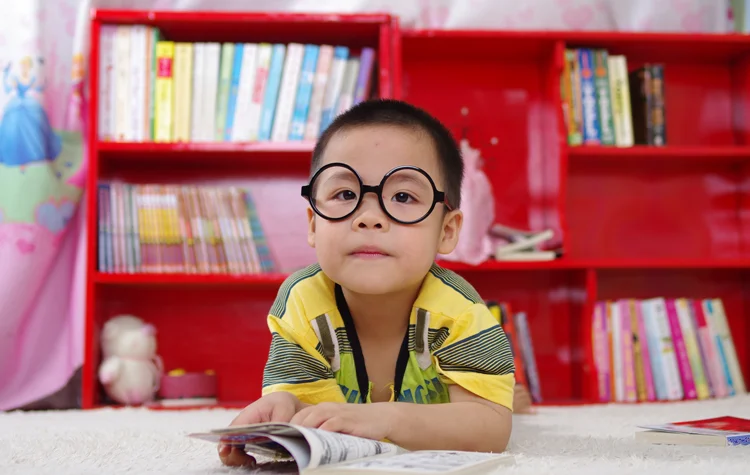It is the age of information. There is information available to us about anything and everything, and it is more than we know what to do with. People often take advantage of this flood of information to propagate false information and push their agenda onto others.
With the availability of fake news and misinformation being rampant in today’s world, it is vital to help your children discern between what is real and what is not. That is where critical reading comes into play.
What is critical reading?
People, when they hear ‘critical reading’- think of it as reading to criticise. It is not. It is an active process involving asking questions and inquiring into various aspects of the content. You read to get a deep sense of the message the author is trying to convey- looking deeper into factors like relevance, the author’s motive, and various other factors. It can help make sense of whether the information you are reading is factual or made up by someone to fulfil some hidden purpose.
Benefits of critical reading
- Your children will be able to understand what they are reading at a deeper level.
- It teaches your children to think for themselves and not get influenced by all the false information out there.
- It can help in their academics. Critical reading is a skill that can help them in researching and finding the required information for their projects or academic papers.
- Help them make informed decisions based on a rational thinking process. It can help them become responsible adults capable of sound judgment.
- Critical reading can help improve your children’s writing skills. When they start analysing other people’s writing, they become aware of how to better construct and put their thoughts into words
How to help your children to develop critical reading skills?
- Cultivate a reading habit

You can’t read critically unless you have a good reading background. It’s not possible to one day wake up and read books and be able to analyse them to the full extent if you’ve never read a book before.
- Encourage your children to read more. Gift them books. If they are starting, select the books for them. It is better to start young. Select books that are at their reading level or just a bit above. Stay with them while reading and engage with them.
- Read to them if they are young to read on their own. Try to instil curiosity and encourage them when they have questions. Tell them it is good to have doubts and to ask questions.
- Discuss with them about the things they read. Ask about their opinions on it and whether they agree with the points made by the author.
- Try to encourage them to take notes, look up things they don’t understand and voice their opinions.

- Never make them feel sorry for stating their opinions. Empower them to voice their thoughts.
- Before you dedicate your time to something, look into a few details.
- What is the book or article about?
- Who is the target audience?
- Who is the author? Is the author qualified enough to talk about the subject?
- When was it written/published?
- Where is it posted/Who are its publishers?
- What is the goal of the author?
How to read critically?
Things to teach your children to keep in mind:
- Keep an open mind – Don’t start reading something intending to accept it or criticise it before giving the author a chance to explain their points. If you’re reading a book or something you will need to look into later, take notes. Keeping a reading journal is very useful.
- Check the data they present – Don’t just take the author’s word for it. If they state a fact or statistic to support their point and if you don’t know whether it is true, look it up.
- Ask questions while reading – Why does the author think so? What made him conclude so? Are they trying to bend the facts to fit their narrative? Why is a particular piece of information important? And so on.
- Always try to identify the intent of the information– What is the author trying to accomplish? Or what are their motives? It can be the factor that often tells you whether what you read is true or something made up to influence people and accomplish some hidden agenda.
- Read slowly – Many times people read fast and miss out on important information. While reading critically, it is vital to pay more attention to what you’re reading. It is not enough to skim over the facts. The active thought process is to be involved.
- Summarise and review – After reading, summarise what you just read and try to analyse it. Talk out loud. It can help in analysing better as it involves one more of your senses.
You must help your children to make sense of all the information being presented to them every day. It is now more important to question the things they see. So, try to encourage your children to do so and support their opinions. Let us together develop a generation of responsible readers! 🙂
Exam Smart Tips
Exam Smart Tip #1 – How to Encourage Our Kids to Speak Better?
Exam Smart Tip #2 – How to avoid carelessness?
Exam Smart Tip #3 – Establishing Routines!
Exam Smart Tip #4 – Let’s Read Carefully!
Exam Smart Tip #5 – Beating the Exam Fever!
Exam Smart Tip #6 – How to Eat Right for the Exams?
Exam Smart Tip #7 – How to Avoid a Meltdown?
Exam Smart Tip #8 – Taking Stress out of Tests
Who We Are
Mission statement – “Empower every student to achieve full potential”
88tuition Pte Ltd offers the best PSLE Tuition Singapore for children looking to ace the PSLE exam. With effective learning materials and high-quality explanatory videos by experienced trainers, children are provided with the best online PSLE tuition.
With the basics learnt well, children will be able to grasp advanced concepts easily. Looking for the best PSLE math tuition, PSLE Science tuition and PSLE English tuition in Singapore? 88tuition has got you covered. The online training videos and assessments are designed in a way that children are made to enjoy the learning process.
UEN 201817310C
271 Bukit Timah Road; #03-08; Singapore 259708



